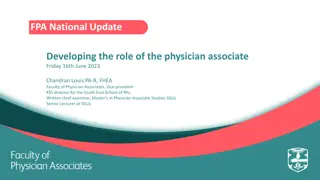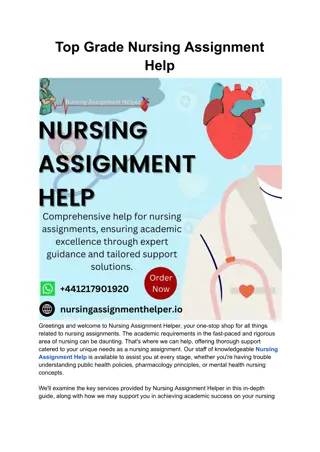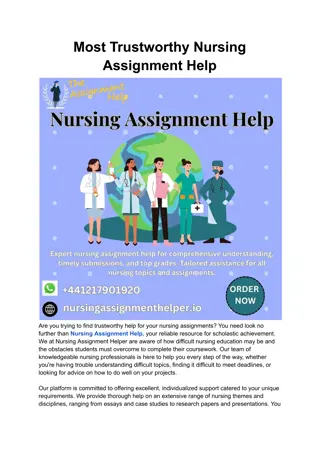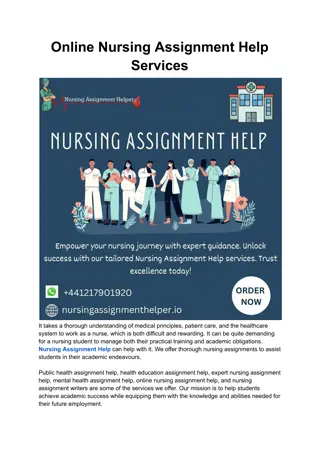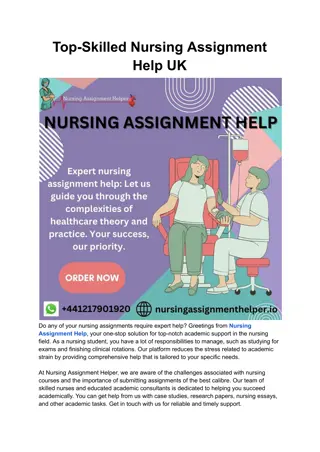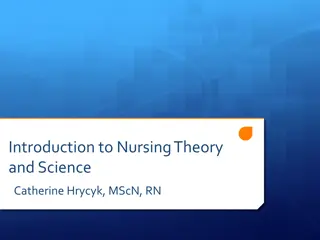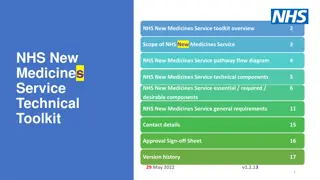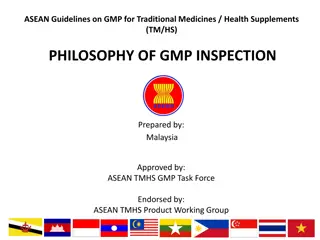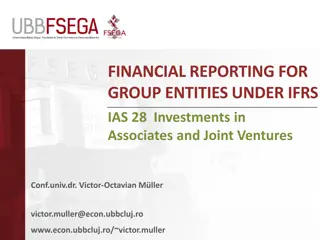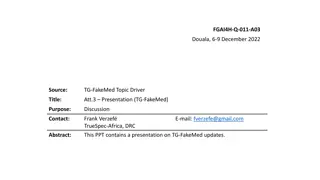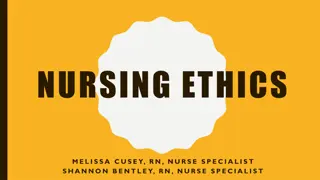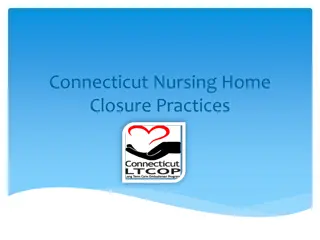Expectations for Nursing Associates in Medicines Management
Medicines management is a crucial aspect of nursing practice to ensure patient safety and optimal treatment outcomes. This presentation highlights the expectations for nursing associates in administering medicines, emphasizing the need for adequate supervision, adherence to guidelines, and integration of medicines management into nursing standards. It covers the role, support from the NMC, education and training programs at Salford University, and emphasizes patient safety and proficiency in drug administration.
Download Presentation

Please find below an Image/Link to download the presentation.
The content on the website is provided AS IS for your information and personal use only. It may not be sold, licensed, or shared on other websites without obtaining consent from the author. Download presentation by click this link. If you encounter any issues during the download, it is possible that the publisher has removed the file from their server.
E N D
Presentation Transcript
#hellomynameis Dr Debs Robertson Lecturer Nurse and pharmacologist
SCOPE OF PRESENTATION Expectations for nursing associates who administer medicines to patients Ensure adequate levels of supervision are in place to support trainee nursing associates in the education and training of medicines management Ensuring adherence to the 2018 guidance
INTRODUCTION Medicines management is not a new concept The clinical, cost-effective and safe use of medicines to ensure patients get the maximum benefit from the medicines they need, while at the same time minimising potential harm. (MHRA 2004)
NMC SUPPORT Integration of medicines management into pre-registration nursing standards from 2019 Part of the nursing associate role Listed in proficiencies
ROLE OF THE NURSING ASSOCIATE Front line patient care Patient assessment Drug administration-including safe drug calculation Part of a team Patient safety
EXPECTATIONS WILL be administering medicines Guidance and regulation by NMC Trust policy regarding further administration roles
EDUCATION & TRAINING At Salford: Year 1 in University Introduction to role in medicines management Legal and professional aspects Safe drug calculation Assessment and administration Monitoring and observation Record keeping and reporting At Salford: Year 1 in Practice Observation of drug rounds Calculation practice Identity checks Patient assessment Consent
EDUCATION & TRAINING At Salford: Year 2 in University Pharmacokinetics Pharmacodynamics Therapeutics Polypharmacy Side effects and interactions Allergies and adverse reactions The drug round At Salford: Year 2 in Practice Participation in drug rounds Calculation and administration Record keeping and reporting Patient assessment and monitoring Accountability Safe storage and transportation
SUPERVISION Qualified nurses and practice supervisors Allocation of placements to meet standards of proficiency Trust induction packages-self directed study and mandatory training Trust governance policies and indemnity Portfolio of evidence and PAD s
SUPERVISION Competency assessment Validity of prescriptions Appropriateness of prescriptions Routes of administration Single person administration restrictions The 5 rights! Delegation?
2018 GUIDANCE STANDARDS OF PROFICIENCY 3.15 understand the principles of safe and effective administration and optimisationof medicines in accordance with local and national policies 3.16 demonstrate the ability to recognise the effects of medicines, allergies, drug sensitivity, side effects, contraindications and adverse reactions 3.17 recognise the different ways by which medicines can be prescribed
2018 GUIDANCE-SKILLS ANNEXE B PROCEDURAL COMPETENCIES REQUIRED FOR ADMINISTERING MEDICINES SAFELY: 10.1 continually assess people receiving care & their ongoing ability to self-administer their own medications. Know when & how to escalate any concerns 10.2 undertake accurate drug calculations for a range of medications 10.3 exercise professional accountability in ensuring the safe administration of medicines to those receiving care 10.4 administer medication via oral, topical & inhalation routes 10.5 administer injections using subcutaneous & intramuscular routes & manage injection equipment
2018 GUIDANCE-SKILLS ANNEXE B PROCEDURAL COMPETENCIES REQUIRED FOR ADMINISTERING MEDICINES SAFELY 10.6 administer & monitor medications using enteral equipment 10.7 administer enemas & suppositories 10.8 manage & monitor effectiveness of symptom relief medication 10.9 recognise & respond to adverse or abnormal reactions to medications, & when & how to escalate any concerns 10.10 undertake safe storage, transportation & disposal of medicinal products.
PGD Patient group directive Homogenous group of patients Inclusion criteria Supply and administration tool Only available to registered professionals NOT yet allowed by NA s Https://www.Nursingtimes.Net/news/workforce/associates-will-be-unable-to-administer-drugs- under-pgds/7023369.Article
NUMERACY AND DRUG CALCULATIONS The need to be able to perform drug calculations to safely administer prescribed medicines Challenging variety of entry level Leading up to final year final module assessment which must be passed at 100%
REFERENCES NMC (2018) Standards for Nursing Associates https://www.nmc.org.uk/standards/nursing-associates/standards-for-nursing- associates/ PGD Information Https://www.Nursingtimes.Net/news/workforce/associates- will-be-unable-to-administer-drugs-under-pgds/7023369.Article Advisory Guidance https://www.hee.nhs.uk/sites/default/files/documents/FAQs%20- %20administration%20of%20medicines%20by%20nursing%20associates.pdf

 undefined
undefined









